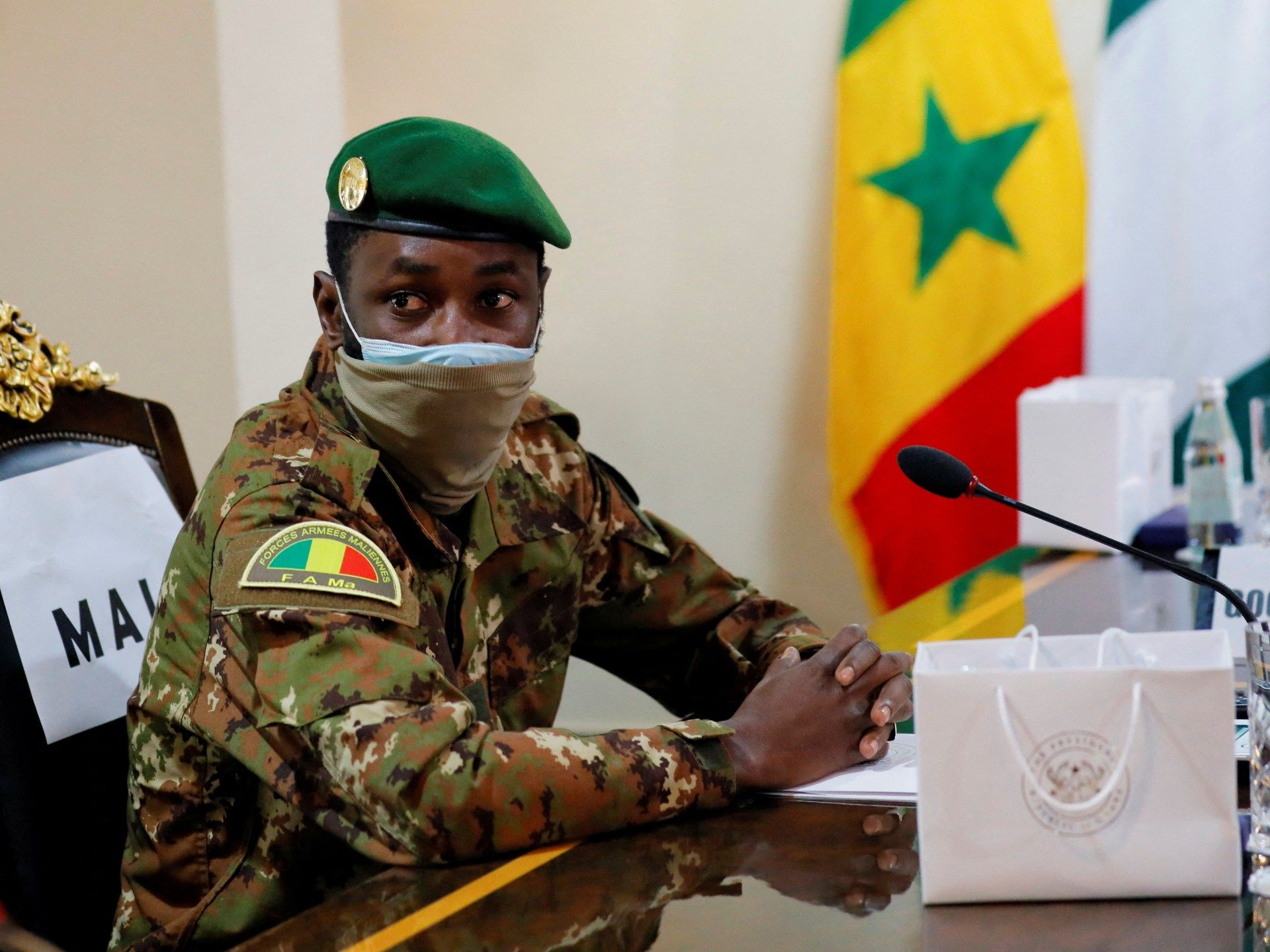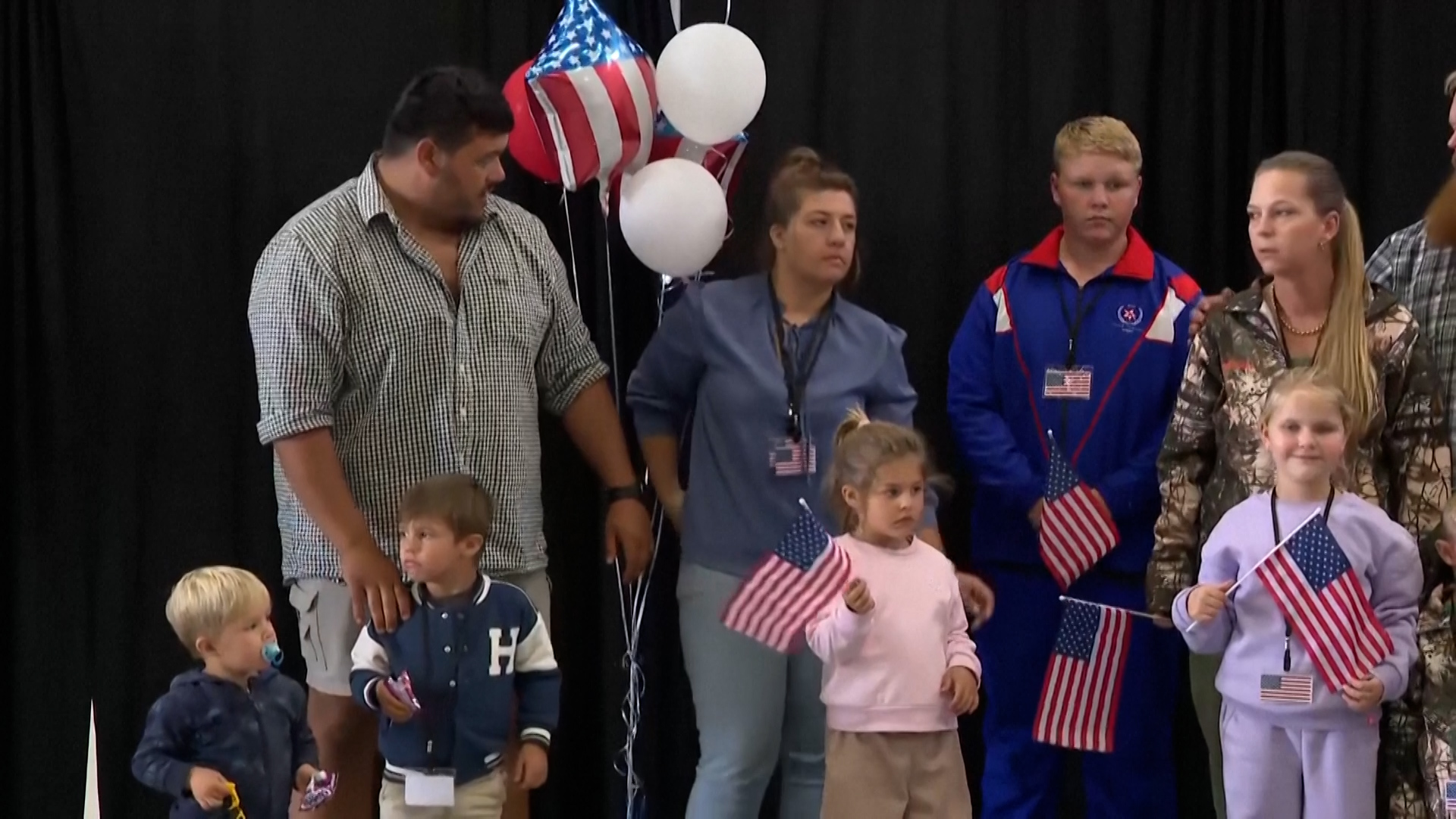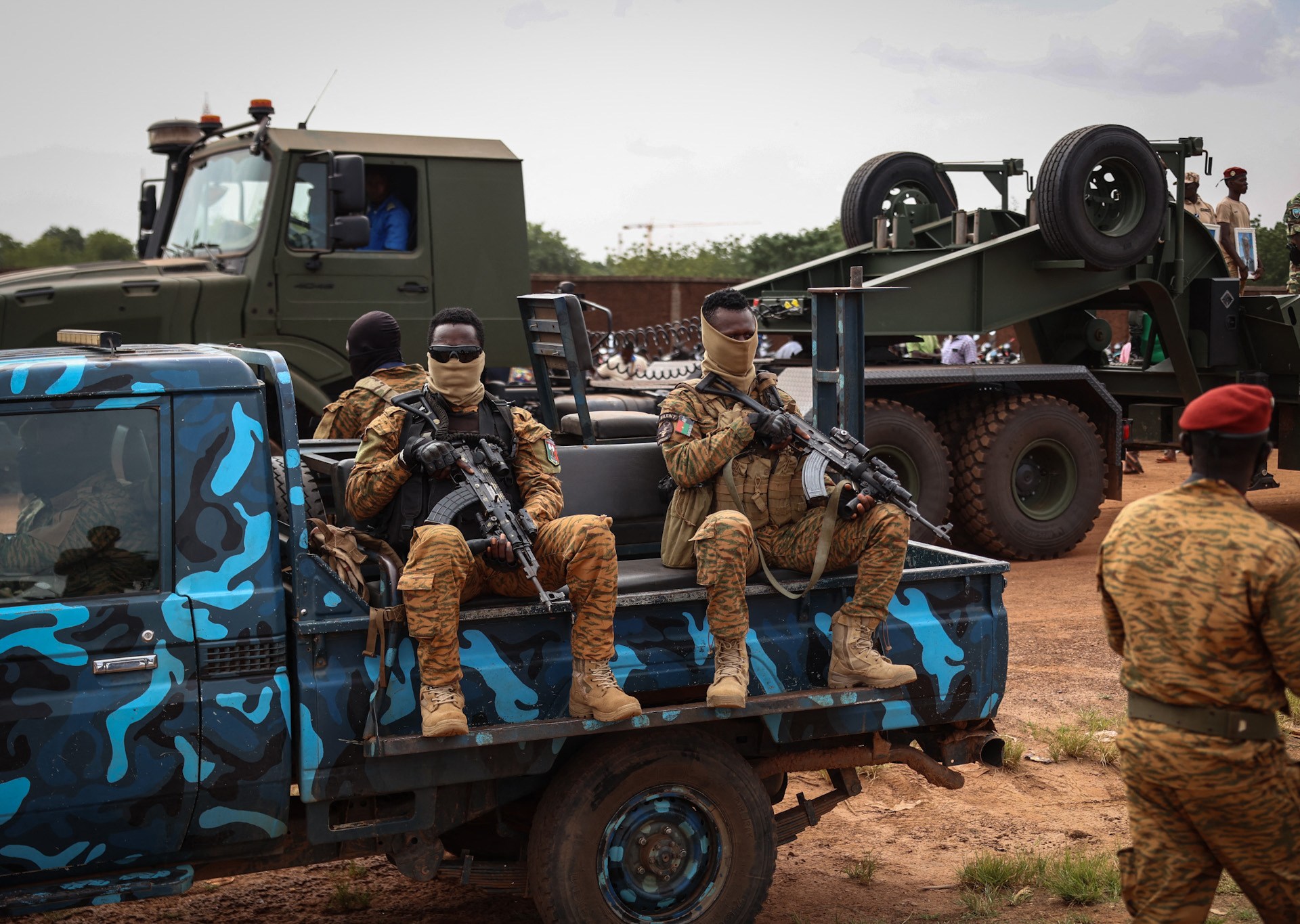‘We need our bananas back’: Traders left in limbo amid Malawi-Tanzania spat | Trade War News
Lilongwe, Malawi – Since he was young, Enock Dayton has made a living from bananas. The 30-year-old was born and raised in Molele, in the southern Malawian district of Thyolo, which was at the heart of local banana production until a plant virus devastated crops more than a decade ago.
At his stall at Mchesi market, in Malawi’s capital Lilongwe, Dayton serves customers from the bunches of green bananas that he has. “I started this business when I was young, and we had farms where we were growing bananas and we would take trucks and bring them here and sell them to individuals,” he told Al Jazeera.
But in 2013, the deadly banana bunchy top disease wiped out almost all the crops in the country. Farmers were asked to uproot their banana plants to avoid the spread of the virus; hundreds of thousands of people were affected.
Bananas are Malawi’s fourth biggest staple crop, after maize, rice and cassava, according to the Food and Agriculture Organization (FAO).
The United Nations body – which is working with other organisations to help revive banana farming in the country – said in 2023 that with “the right investments and strategic support, the banana sector has the potential to provide greater benefits in food and nutrition security and commercial value for growers, transporters, consumers and food processors”.
But in the meantime, to maintain their businesses in the absence of sufficient local produce, farmers and fruit-sellers like Dayton turned to neighbouring Tanzania to import the crop and complement their own meagre local supplies. In 2023 alone, for instance, Malawi imported more than $491,000 worth of bananas, with the majority of that – 5,564,180kg (12,266,920lb) – coming primarily from Tanzania. The remainder came from South Africa and Mozambique.
But this year, that arrangement came to a sudden halt. In March, Malawi said it was temporarily banning the import of some farm produce, including bananas, from Tanzania and other countries. The government said this was to help support local industries and stabilise the country’s foreign exchange shortage, which has led to challenges that include the inability to import some necessities, like pharmaceuticals.
But Malawi might have underestimated the effect of its bold move, observers say.
In retaliation, in April, Tanzania banned the entry of all agricultural imports from Malawi, responding to what it described as restrictions on some of its exports. That ban also extended to South Africa, which for years prohibited the entry of bananas from Tanzania.
This was bad news for Malawi, observers say, as it is more on the receiving end of trade between the neighbours. According to data from the Observatory of Economic Complexity (OEC), Malawi exports less than $50m worth of products to Tanzania, including soybean meal, soybeans and dried legumes, while it imports hundreds of millions of dollars in the form of mineral fuels, oil, distilled products, soaps, lubricants, cement and glassware, among other products.
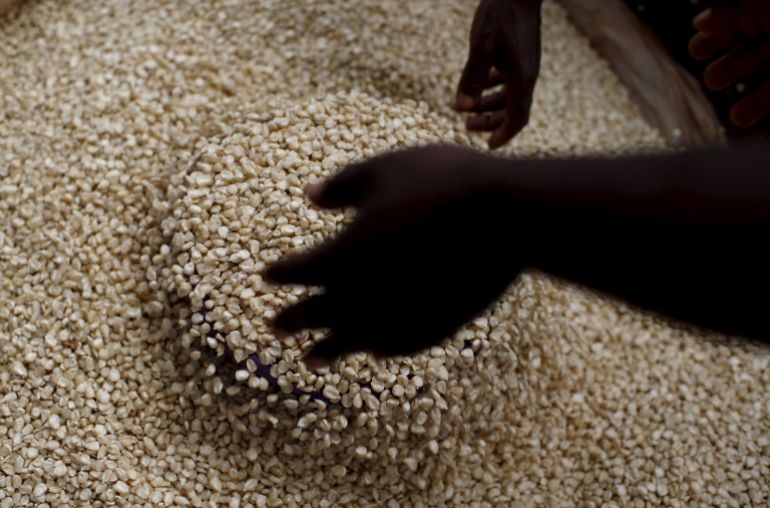
In its response, Dar es Salaam went a step further, extending its trade ban to the export of fertiliser from Tanzania to landlocked Malawi. It also threatened to stop goods en route to Malawi from passing through Tanzania.
By land, Malawi depends on Tanzania, Zambia and Mozambique for the import of goods. As it lacks direct access to the sea, Malawi utilises seaports in Tanzania and Mozambique. But the instability of the Mozambique route – due to insecurity caused by conflict, recent post-election violence and truck drivers facing harassment – made the deadlock with Tanzania a bigger challenge for industry. Businesses that rely on the import of farm produce started crying foul as their trucks of groundnuts and other produce stood in line at the Songwe border.
Malawi also found itself in a tricky situation as it depends on Tanzania for its harbours to import fuel.
Soon, even Kenya found itself entangled in the conflict as cargo from Malawi, which has to travel through Tanzania, was also stopped en route.
The ensuing row shone a light on Malawi’s precarious geographical location, as well as regional agreements aimed at facilitating trade, the efforts by individual nations to follow the rules, and the macroeconomic imbalances in a nation designated as one of the poorest in the world.
After weeks of tensions, this month, a high-level meeting between Malawi and Tanzania appeared to have brokered the differences, paving the way for the lifting of the bans between the two countries, according to a spokesperson for Malawi’s Ministry of Foreign Affairs.
‘Symptom of a huge challenge’
For Ernest Thindwa, a political commentator based at the University of Malawi, the recent trade dispute does not exist in isolation – and should also be viewed from a political lens.
Both countries are heading for polls this year, first Malawi in September and then Tanzania in November. Within an election environment, the dispute says something about the attempts by both countries’ leaders to display patriotism and a sense of empowerment to their citizens, the analyst said.
“The current administration [in Malawi] wants to be seen to be delivering and they want to be seen to be responding to people’s concerns,” Thindwa told Al Jazeera. “And certainly they need to make sure that local producers are protected, which has become more urgent as we go towards elections.”
Thindwa said that both Malawi and Tanzania are signatories to regional and international trade agreements, the frameworks of which entitle them to take measures to protect their trade interests when they deem necessary.
However, he questioned the timing of these moves, asking why the initiatives by Malawi were not implemented earlier if they were indeed to protect local industries.
Answering his own question, he said, “Because then it might have not been an agent in terms of attracting votes.”
“What you would call subsistence or smallholder producers … would be significant for the government in terms of trying to win votes from such social groups,” he observed.
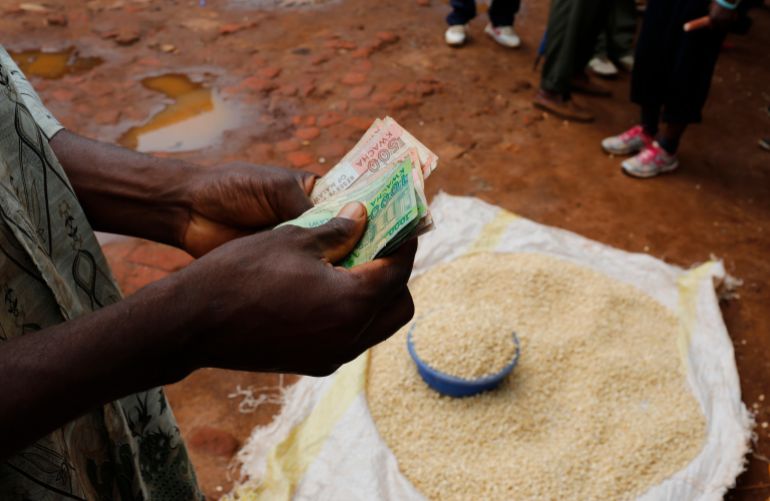
Meanwhile, in Tanzania, something similar was at play in its decision to retaliate, Thindwa said.
“The incumbent administration in Tanzania wants to be seen to be responding to the needs and interests of its citizens. So the administration in that country, in Tanzania, also wanted to project an image that it cares for its people. That’s why it responded rather quickly.”
Broadly speaking, Thindwa noted that the trade dispute points to overall challenges African countries face – in terms of promoting internal trade, and trading more within Africa than with other continents.
Citing the example of Angola, he said that despite it having oil, countries within the Southern African Development Community (SADC) bloc continue to import oil from the Middle East.
“There is Angola there,” he said. “Why can’t they put together a regional project, for instance, and invest in the capabilities to make sure that the end product is being produced in Angola and Angola serves the region, to be much cheaper for the region? And it will make sure that the resources of the region remain within the region.”
Such examples show that “in spite of these trade protocols, Africa still struggles to encourage trade between member states”, he said.
“So the case of Tanzania and Malawi is just a symptom of a huge challenge Africa faces in terms of promoting internal trade.”
Tensions eased
In a statement on May 9, Malawi’s Ministry of Trade said Malawi and Tanzania had held bilateral discussions in Tanzania regarding the implementation and resolution of its prohibition order.
After that, a letter from the ministry, addressed to Malawi’s Revenue Authority, read: “In this regard, I wish to advise that you facilitate the clearance of exports and imports of goods between the Republic of Malawi and the Republic of Tanzania. This, however, does not exempt importers from complying with legal and regulatory requirements, including obtaining the relevant licences and certifications from regulatory bodies.”
After the talks, Charles Nkhalamba, Malawi’s Ministry of Foreign Affairs spokesperson, told Al Jazeera the neighbours had signed “a joint communique” to resolve the dispute between them.
The “high-level discussions” were a result of “robust diplomatic efforts” by the foreign ministries of both countries, he said in a message on WhatsApp, adding that Tanzania also “acknowledg[ed] the economic circumstances that necessitated the import restrictions”.
During the meeting, both parties agreed in principle on the importance of continuous engagement and communication on all matters impacting their bilateral trade relations, Nkhalamba added.
Weeks earlier, Tanzania’s Ministry of Agriculture also released a statement acknowledging that Lilongwe had reached out to Dar es Salaam to resolve the problem and stating that “Tanzania is lifting a ban on export and import of agricultural produce to and from Malawi”.
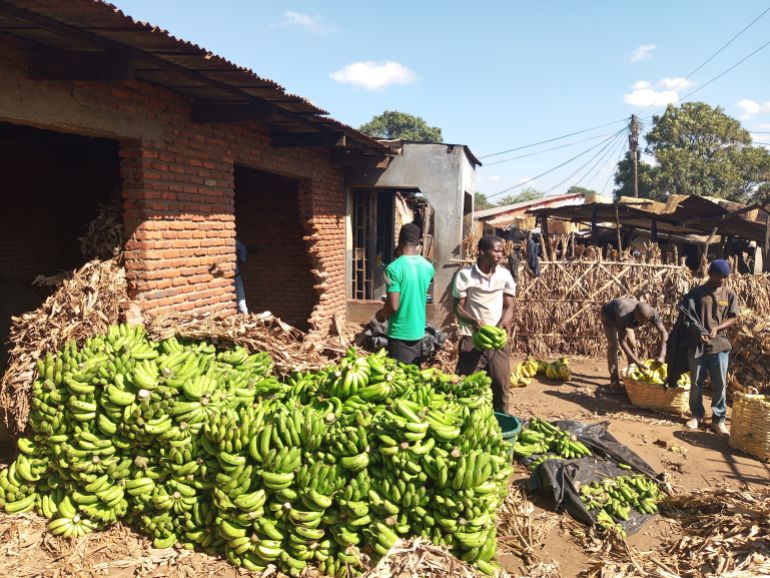
In principle, the trade war between the neighbours appears to have stalled for now.
But experts told Al Jazeera that practically speaking, it will take time for the logistics to be sorted out and for things to return to normal for sellers left in limbo when their supplies dried up.
At the market in Lilongwe, Dayton is eagerly awaiting the trucks of sweet bananas from across the border, so he has enough to sell to his customers.
He is grateful for the cross-border trade, and the arrangement that has over the years helped business people like him make money selling the crop from their neighbours.
But he also had mixed feelings as he reminisced about their lost opportunity to grow their own crops.
“The amount of money we used to have when we grew our own bananas is different from what we’re earning now,” Dayton said. “While we were growing and buying them at a cheap price … we were making a lot of money, apart from the transport [costs]. The ones from Tanzania are quite expensive.
“We need our bananas back.”
A decade ago, Dayton was a casualty of a natural disaster that made his garden back in the village dormant. Now, he feels that he is a casualty of the decisions made by authorities in offices far away.
“What we want is a stable supply of bananas in this market,” he said. “It’s good because it provides for our families and the customers as well.”

